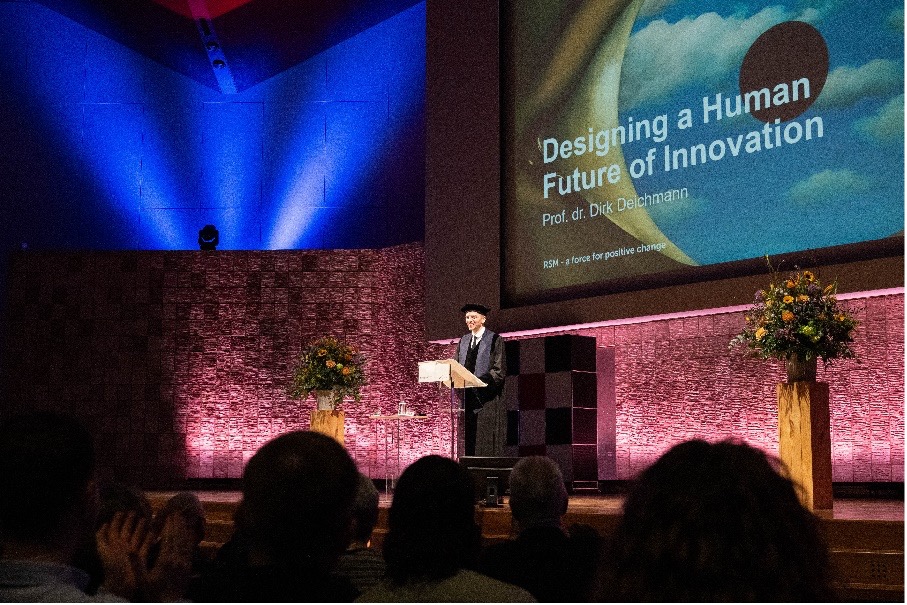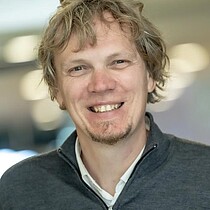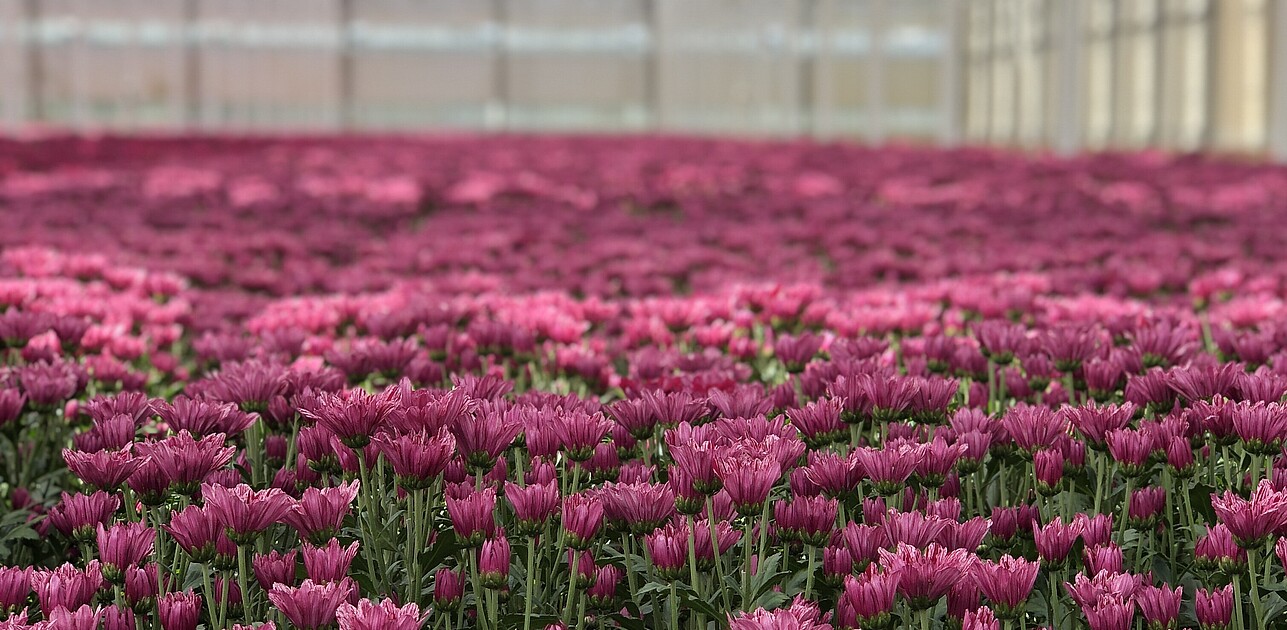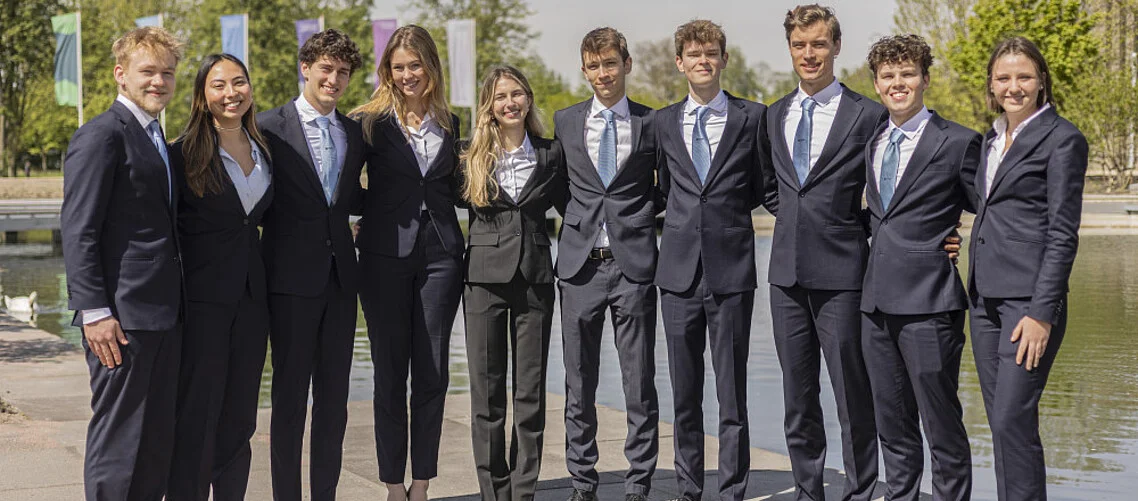Student team challenge: Advising the Westland horticultural cluster and its companies
This off-site challenge enables RSM’s BSc International Business Administration and BSc Business Administration Honours students to familiarise themselves with the dynamics and the competitiveness of the Westland horticultural district and the innovation and marketing strategies of its leading firms. Teams of honours students will be linked to individual companies and stakeholders in the cluster and asked to find opportunities and new strategies for growth. Teams of 3-4 students consult for 8-10 different client companies and look into their needs and ambitions for 2 consecutive days, after which they pitch their policy recommendations to an audience of entrepreneurs, business owners, managers, and cluster experts.
Period: December 4-5, 2024
Location: World Horti Center in Naaldwijk and Tomatoworld in Honselersdijk
Teacher: Dr Wim Hulsink
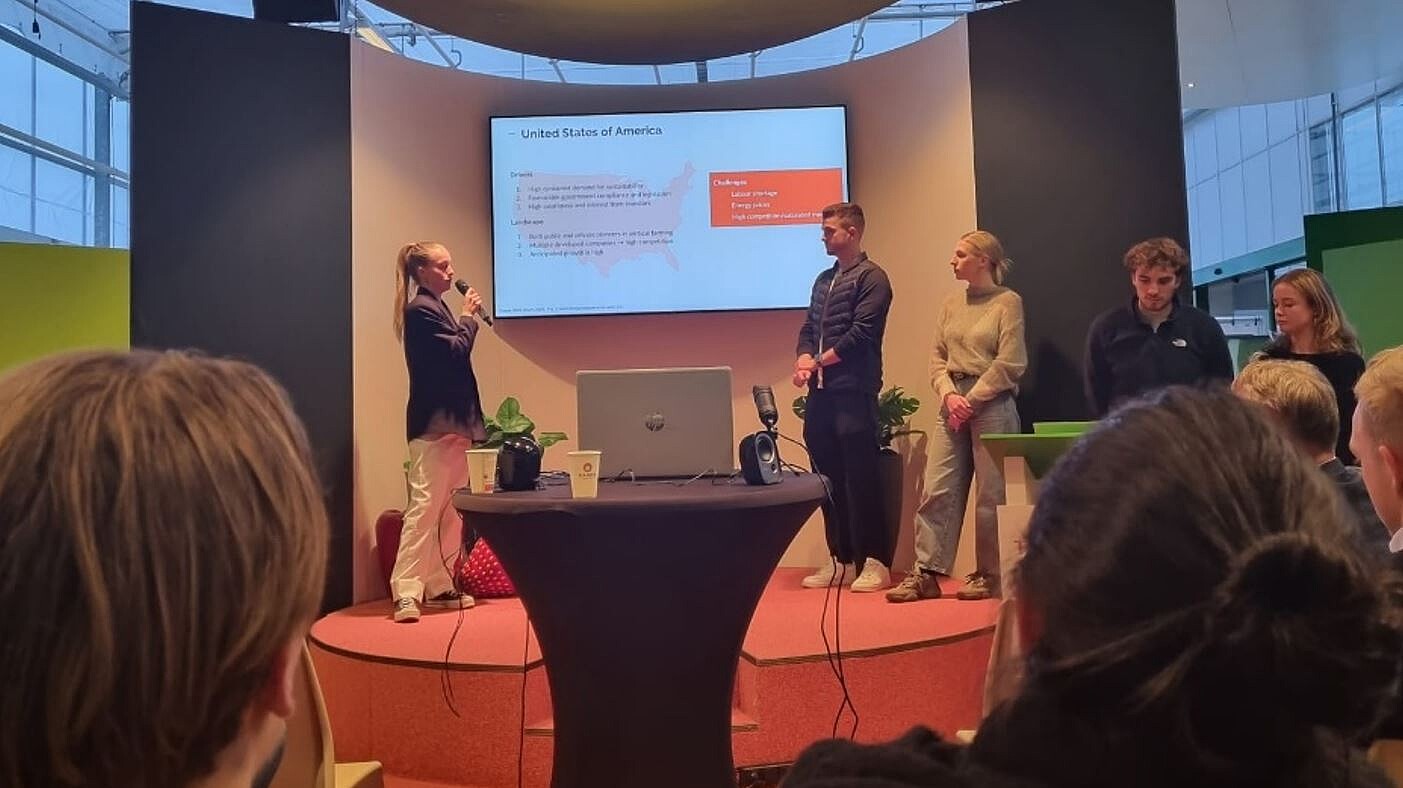
Master elective: Foresight and Future Thinking in the Horticulture Sector
Master students learn that business decisions should be based on past data as well as the systematic development and evaluation of possible futures. By using foresight and future thinking tools and techniques, they learn how to anticipate and assess multiple future scenarios for the Dutch horticulture sector, see new opportunities for innovation arising from them, and plan for a better future for organisations and their stakeholders. Throughout the course, students help organisations and stakeholders in this sector to anticipate possible future scenarios, and advise them on their short- and long-term innovation investments.
Period: Each year between January and March
Location: Rotterdam School of Management, Erasmus University
Teacher: Prof. Dirk Deichmann
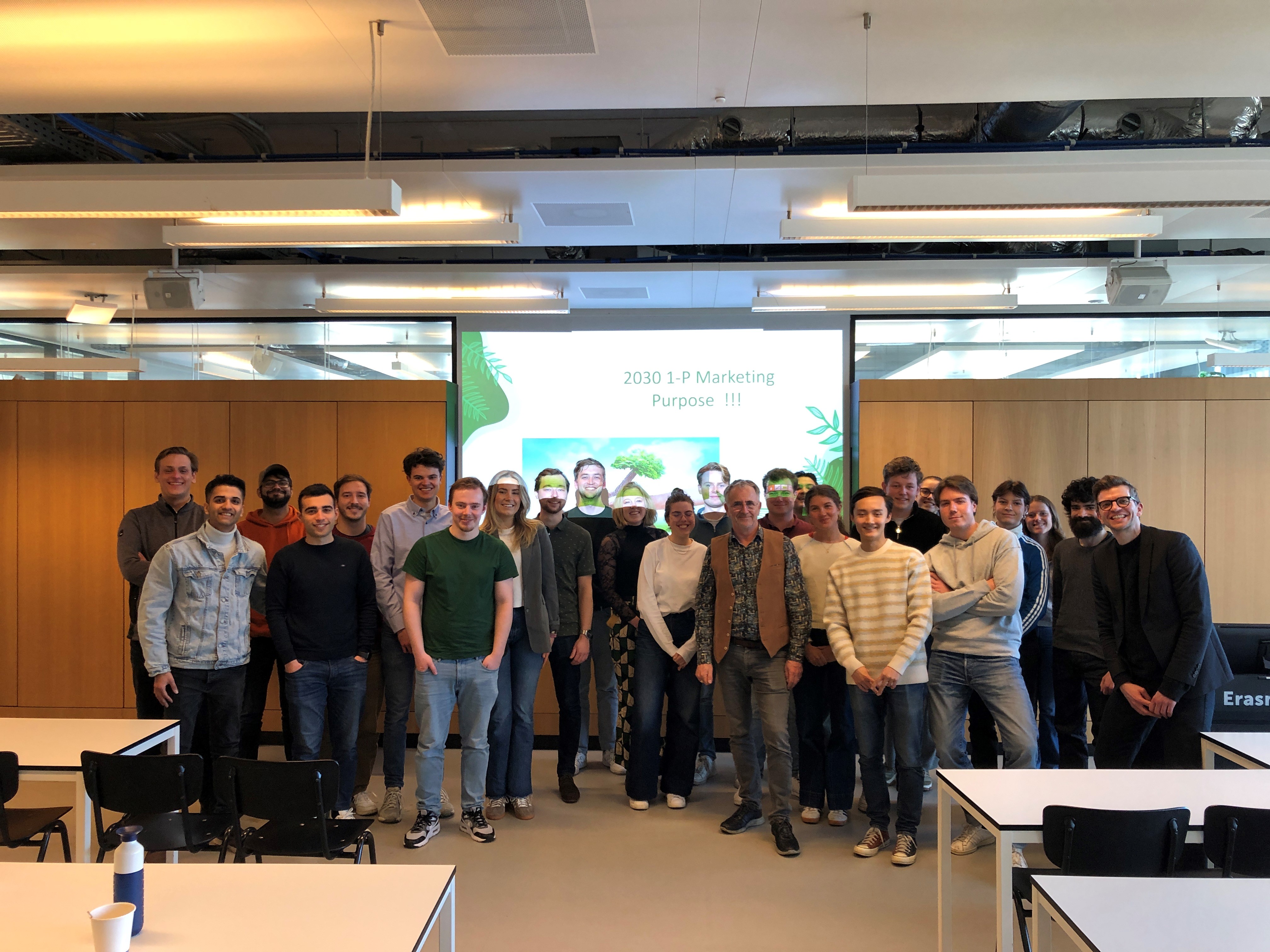
Thesis lab: The Future of Energy in the Horticulture Sector
This thesis lab for master students from Leiden, Delft and Erasmus universities looks at the urgent matter of making sure energy for the greenhouse horticulture sector becomes sustainable. The transition will enable the sector to meet increasing sustainability requirements, to counter increasing energy costs, and to maintain its legitimacy. Right now, the sector consumes 9 per cent of all natural gas used in the Netherlands, but produces 11% of its electricity. Although the sector has already taken steps towards using sustainable energy sources – particularly by using biomass and creating geothermal energy – natural gas is still the major energy source.
The focus of the thesis lab will be what the energy provision of the sector will look like in the future. Ten students from Leiden University, Delft University of Technology, and Erasmus University Rotterdam will write their master theses on a topic within this broader theme, while collaborating on the joint challenge and with actors from the sector.
Period: January – June 2025
Location: Alternating locations in the three universities
Academic coordinator: Dr Yashar Ghiassi-Farrokhfal
Organisers: Prof. Jan van den Ende and Ilse Markenstein, centre manager of the Leiden-Delft-Erasmus Centre for Sustainability
In April 2024 the STAR study club of RSM organized its yearly case competition on a case from the Dutch Horticulture sector. The case concerned the challenge in a specific horticulture region, the ‘Broekpolder’, to make the transition to using sustainable energy sources to meet the government’s goal for halving C02 emissions and to become climate neutral by 2040.The competition was sponsored by the horticulture sector. 16 Teams from top business schools from all over the world had 24 hours to develop a proposal with solutions. Solutions included developing innovative models to engage stakeholders around shared sustainability goals, such as through community-led organisations or app-based voting, sustainable heating methods from harvesting of data centre waste and storage in underground aquifers. The winners were (1) Maastricht University, (2) HEC Montréal and (3) American University of Beirut.
Read the news article
Period: April 17-23, 2024
Location: Rotterdam School of Management, Erasmus University
The MVE in Agrofood- Grassroots project supports the transition to a healthy, circular, and regenerative food system in the Netherlands by developing four Minimum Viable Ecosystems (MVEs). These are the smallest effective constellations of actors, roles, and processes that can create and validate sustainable value.
The four MVEs focus on:
- Climate-resilient food production,
- Retaining food waste for human consumption,
- Building an alliance for plant-based and circular proteins,
- Designing healthy food landscapes around cities.
Outcomes include a digital toolkit for ecosystem design, co-creation formats, training programs, and impact assessment using tools like the Stanford Impact Compass.
Funder:
This project is funded by CLICKNL Ontwerpkracht & Transities PPS. The budget for RSM is 59,000 euro.
Involved Scientists:
Dr Wim Hulsink. The lead institution is Wageningen University (WUR), working with partners including RSM, ScaleUp Practitioners, In4Art, Dutch Design Foundation (DDF), and East Agency.
LEAP-AI aims to explore how layered, AI-based control systems can enhance the efficiency of resources in greenhouses while ensuring that these systems make decisions that are explainable and understandable, paving the way for broader adoption.
The impact of LEAP-AI is anticipated to be threefold:
- Increasing greenhouse sustainability
- Reducing costs of greenhouse products
- Strengthening food security
This project is a cooperation with TU Delft and has received funding from the Dutch Research Council (NWO) KIC MISSIE AI for Agriculture, Horticulture, Water and Food.
Researcher: Prof. Dirk Deichmann
A consortium led by RSM and Docklab, a start-up ‘venture studio’ in the Port of Rotterdam, has been awarded almost half a million euros in funding for end-to-end digitalization of fruit and vegetable chains between Kenya and the Netherlands, and between Kenya and the United Kingdom. The emphasis is on regulated and self-imposed measures within these chains aimed at product quality, environment, and society.
A unique aspect of the project is its end-to-end character, which is made possible by collaboration between the consortium members, the TradeMark Africa platform, the Chartered Institute of Export and International Trade in the UK, CargoLedger and Annona Deep Tier Impact Finance, a source of funding active in West Africa, with contributions from the University of Wageningen and the Windesheim University of Applied Science. The Port of Rotterdam Authority is a supporter, based on its green and digital corridors project.
Researchers: Prof. Rob Zuidwijk, Janpriy Sharma, and a second postdoc.
In recent years, private equity firms have become interested and active with investments in the greenhouse horticultural sector. Why is that the case? Are they interested in the persistent good returns of its individual firms, in scalability, or in food security across the globe? Using multiple interviews with different parties, this research project studies the overall role and impact of private equity investments on the Dutch horticultural sector, and their effects on operational efficiency and productivity, innovativeness, growth, scaling up, and geographical expansion, as well as professionalisation of management and governance. This project is funded by the Topsector Horticulture and Starting Materials.
Researchers: Dr Wim Hulsink and Dr Hans Bruining
This project investigates the dynamics of research organisations in the Dutch floriculture breeding sector. This sector is experiencing an increasing need to intensify company research so it can exploit opportunities resulting from new genetic engineering technologies. Different companies apply different solutions for this need; there are joint research activities between firms from different subsectors in flower breeding; collaboration with universities; and horizontal integration for research into different types of flowers. This project raises focuses on the question of which type of joint action is appropriate to solve the current bottleneck created by the increasing research intensity.
Researcher: Prof. Jan van den Ende
The project aims at creating more sustainable food systems by applying new methods of land use. The project is funded by the large “National Growth Fund” programme Re-Ge-NL that focuses on the transition from the current agricultural system to a regenerative agricultural system.
Researchers: Dirk Schoenmaker and Mathijs van Dijk
See: RSM secures €1.5 million research grant on sustainable food systems
On March 11, 2025, the Topsector Horticulture and Starting Materials organized a conference on: Private equity: curse or blessing? Associate professor Wim Hulsing from RSM presented a study on the effects of the increasing investments by private equity in the horticulture sector. His conclusion was that scaling up and high-tech cultivation systems ensure that the capital requirement for growers and suppliers is growing. Private equity can provide the solution, although sometimes private equity investments go wrong. About 80 people from the sector attended the conference.
Location: PROOF Hortitech, Honselersdijk, the Netherlands
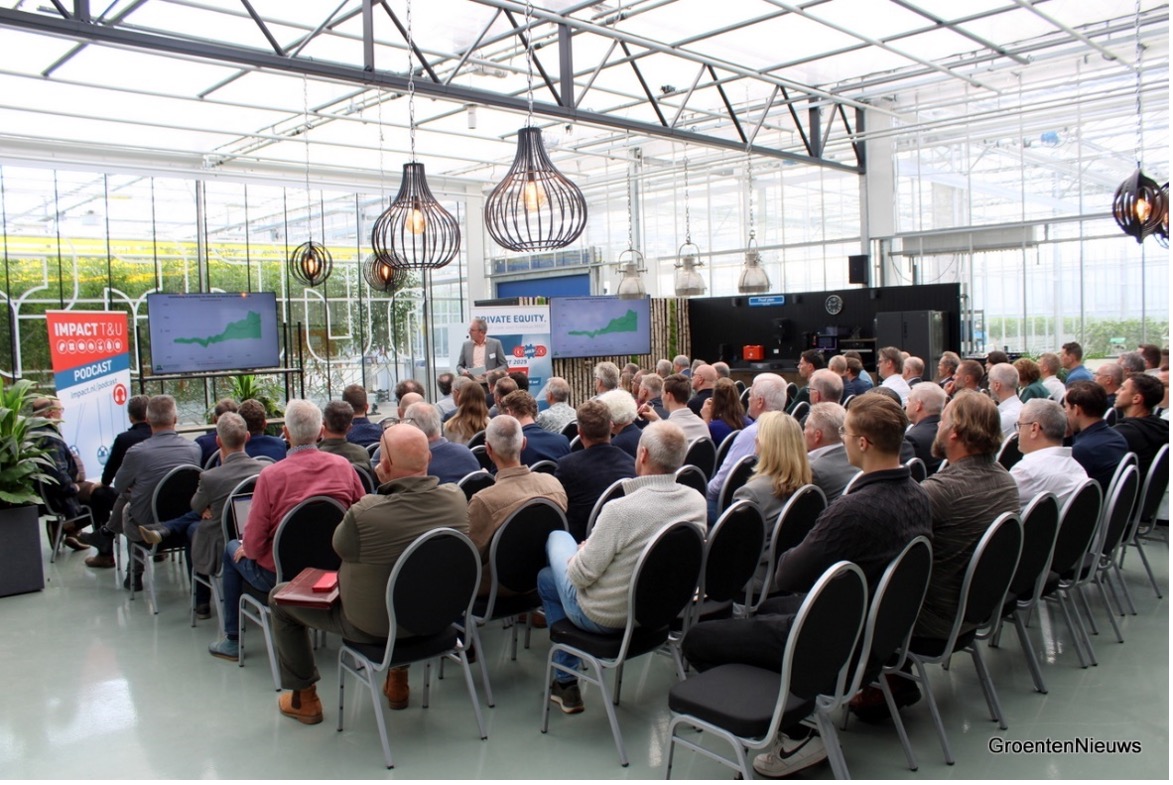
On 7 March 2025 Dirk Deichmann accepted his appointment as Endowed Professor of Horticulture Innovation at Rotterdam School of Management, Erasmus University with an inaugural lecture entitled “Designing a Human Future of Innovation.”
In his inaugural lecture (see here for a recording and here for the accompanying book), Dirk reflected on the need to maintain the pace of innovation, particularly in the horticultural sector. Dirk argued that an innovation management system that brings the best out of people—their capability to unite and collaborate, their empathy for others, and their intuition and expertise—is likely to be much more successful than a process that attempts to work around the human factor. Dirk argued that more research is needed about how we can create the conditions for people to engage continuously in the innovation process as well as how we can design innovation communities that facilitate collaboration instead of competition.
